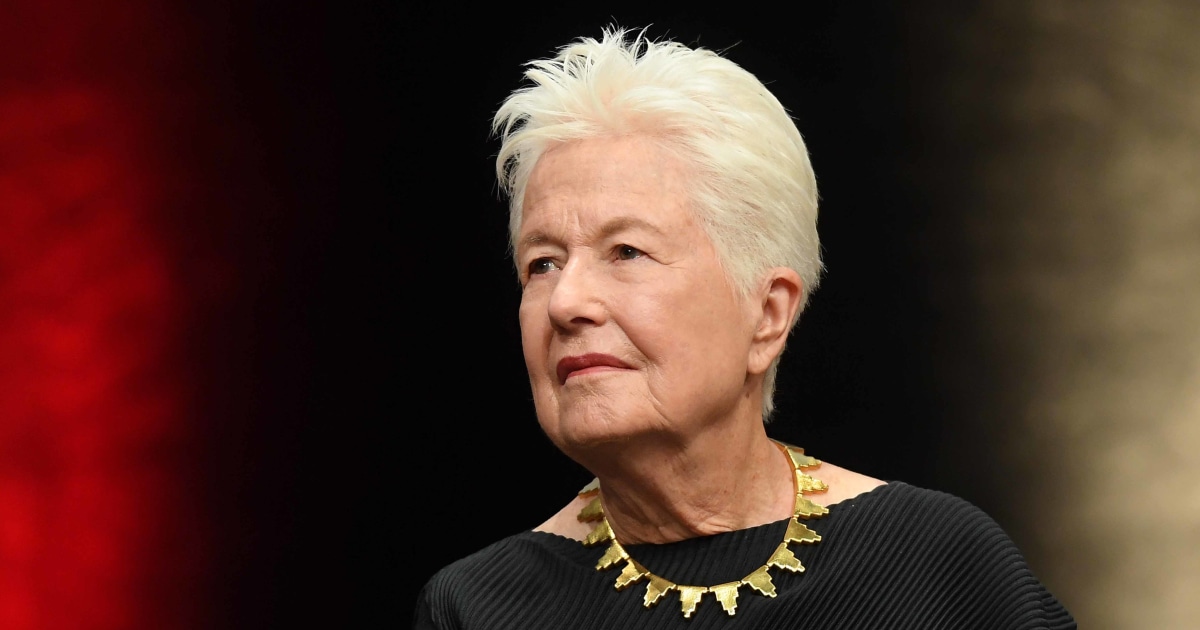By Jame Coyle and Lindsey Bahr -
The Associated Press
Eleanor Coppola, who documented the making of some of her husband Francis Ford Coppola's iconic films, including the incredibly tortured production of
Apocalypse Now
, and who raised a family of filmmakers, has died. She was 87 years old.
Coppola died this Friday at his home in Rutherford, California, his family announced in a statement.
Eleanor, who
grew up in Orange County, California
, met Francis while working as an assistant art director on his directorial debut, the 1963 horror film
Dementia 13
, produced by Roger Corman. She studied design at UCLA. Within months of dating Coppola, Eleanor became pregnant and the couple married in Las Vegas in February 1963.
His first son, Gian-Carlo, quickly became a regular presence in his father's films, as did his next children, Roman (born 1965) and Sofia (born 1971). After acting in his father's films and growing up on stage, they all dedicated themselves to cinema.
“I don't know what the family has given, except that I hope they have set an example of a family that encourages each other in their creative process whatever it may be,” Eleanor told The Associated Press in 2017. “It happens in our family that everyone world chose to continue in some way in the family business. We didn't ask for it or expect it, but they did it. At one point, Sofía said: 'The apple doesn't fall far from the tree.'”
Gian-Carlo, who was seen in the background in many of his father's films and began doing photography as part of the second unit film,
died at age 22 in a boating accident in 1986
. He died while traveling on a boat piloted by Griffin O'Neal, son of Ryan O'Neal, who was convicted of negligence.
Roman directed several films and frequently collaborates with Wes Anderson. He is president of his father's film company, American Zoetrope, based in San Francisco.
Sofia became one of the most acclaimed filmmakers of her generation as the writer and director of films such as
Lost in Translation
and 2023's
Priscilla
. Sofia dedicated that film to her mother.
By joining the family business, Coppola's children were not only following in their father's footsteps, but also in their mother's. Beginning with 1979's
Apocalypse Now
, Eleanor frequently documented life behind the scenes in Francis' films. Filming for
Apocalypse Now
in the Philippines
lasted 238 days
. A typhoon destroyed the sets. Martin Sheen suffered a heart attack. A member of the construction team died.
Eleanor documented much of the chaos in what would become one of the most famous films about the filming,
1991's
Hearts of Darkness: A Filmmaker's Apocalypse .
“I was just trying to keep myself busy with something to do, because we were there a long time,” Eleanor told CNN in 1991. “They wanted five minutes for a TV promo or something and I thought sooner or later I could get five minutes of film and then "It went to 15 minutes."
“I kept recording but I had no idea [...] of the evolution of myself that I saw with my camera,” continued Eleanor, who ended up shooting 60 hours of footage. “So it was a surprise for both of us and
a life-changing experience
.”
Eleanor also published
Notes: On the Making of Apocalypse Now
in 1979. While the film focused on the tumultuous filming, the book reflected some of Eleanor's inner turmoil, including the challenges of being married to a famous figure. During the year they spent in Manila, she felt “a woman isolated from my friends, my affairs and my projects.” She also speaks candidly of Coppola's extramarital affair.
“There is a part of me that has been waiting for Francis to leave me, or die, so I can have my life the way I want,” Eleanor wrote. “I wonder if I'll have the guts to get her the way I want with him inside her.”
However, they remained together throughout their lives. And Eleanor continued to seek creative outlets for herself. She documented several more of her husband's films, as well as Roman's
CQ
and Sofa's Marie Antoinette. She wrote a memoir in 2008: Notes on a Life.
In 2016, at the age of 80, Eleanor made her narrative debut in
Paris Can Wait
, a romantic comedy starring Diane Lane. She followed up with
Love Is Love Is Love
in 2020. Eleanor had originally only set out to write the script for
Paris Can Wait
.
One morning at breakfast, my husband said to me, “You should direct it.” “I was totally surprised,” Eleanor told The Associated Press. "But I said, 'Well, I've never written a script and I've never directed, why not?'
I was like saying 'why not' to everything
.”

